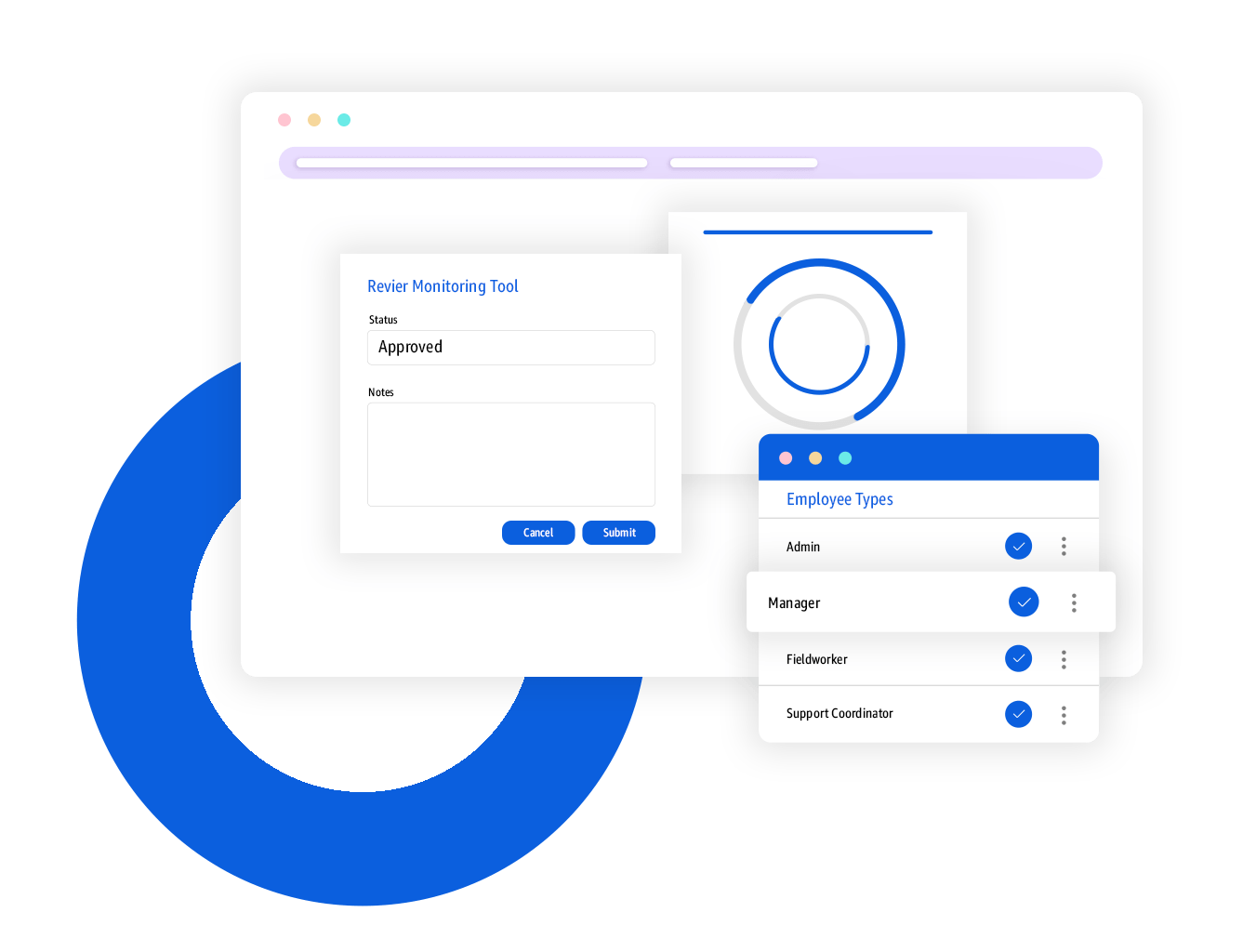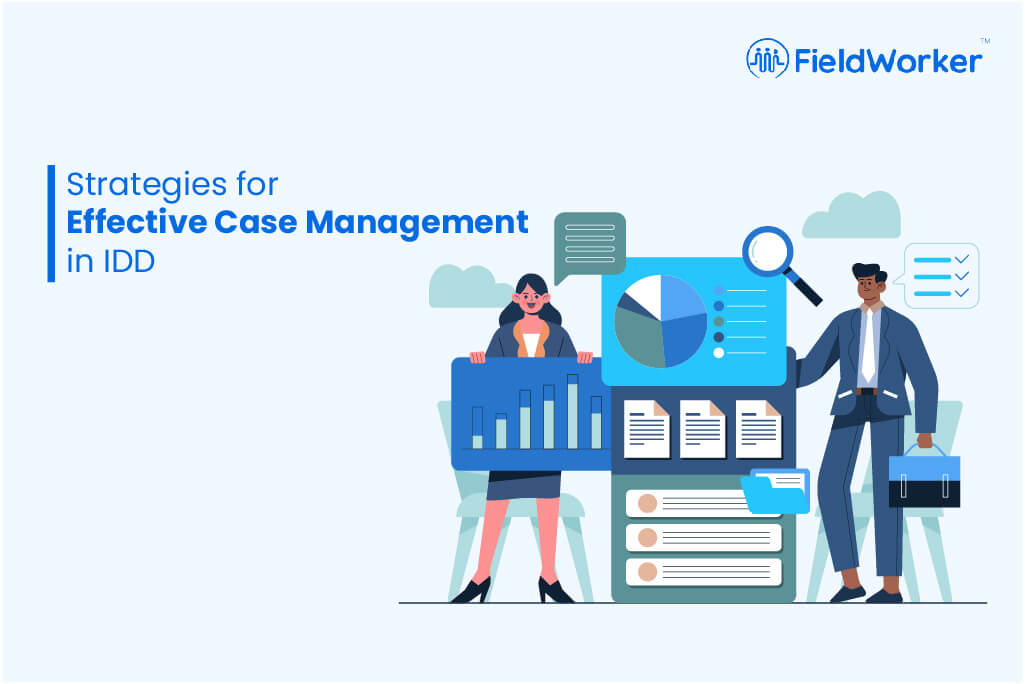Effective IDD services are essential for navigating life with IDD. These services are critical in helping individuals with intellectual disabilities and their families achieve independence, productivity, and inclusion within the community. In recognition of the complexity of IDD, the services provided must be tailored according to the client’s individual needs. This includes factors like age, gender, and cultural background. Addressing clients’ immediate needs and safeguarding their fundamental rights and dignity is essential.
A Brief Overview of Intellectual & Developmental Disabilities
IDDs are chronic conditions that have a significant impact on an individual’s ability to learn, adapt, and interact with others. Over 6 million Americans are affected by these conditions. They affect speech, language skills, motor functions, and sensory abilities. The terms “developmental disabilities” and “intellectual disabilities” are often used interchangeably. However, there are nuances. The term “developmental disability” encompasses various challenges from childhood to adulthood. “Intellectual disability,” on the other hand, is more specific and affects cognitive functions.
The importance of implementing IDD Services Strategies
The true importance of IDD lies in strategic implementation. Effective IDD strategies go beyond generic approaches and focus on personalized, person-centered methods. These strategies are designed to empower people, ensure their active social participation, and stress the importance of rights-based approaches.

Understanding IDD Services
The term intellectual and developmental disabilities (IDD) encompasses a wide range of conditions, including autism spectrum disorders. Each presents unique challenges, so tailored support is essential for individuals with these conditions. IDD services are designed to meet the needs of individuals with intellectual disabilities (IQ less than 70), developmental disabilities (identified by specific criteria such as motor skills, learning disabilities, communication problems, social skills deficits, and emotional/behavioral issues), and physical disabilities.
The scope and diversity of Intellectual and Developmental Disabilities
The landscape of intellectual and developmental disabilities is complex and diverse. IDD is diverse, as evidenced by conditions such as autism spectrum disorders (ASD), Down syndrome, and Fragile X syndrome. Families and caregivers who are seeking services may find it challenging to address this diversity since each condition requires a unique and nuanced approach. Service providers and families need to understand the complexity of IDD to tailor interventions to meet the needs of each individual, taking into account factors like age, gender, culture, and specific challenges.
The Challenges of Providing Services
The complexity and range of intellectual and developmental disabilities make it difficult to provide adequate services. Families and caregivers are often plagued by the belief that their loved one’s behavior is different from usual, leading to feelings of inadequacy. This perception of the societal norm can prevent people from seeking appropriate services.

The challenge for service providers is to dispel these myths and foster an understanding that people with IDD have average intelligence levels in comparison to the general population. It is essential to overcome societal biases and provide services that are tailored to the individual needs of individuals with intellectual and developmental disabilities.
IDD Services: Key Components to Effective IDD Services
Support covers a wide range of well-being issues and goes beyond disabilities. Accessibility and inclusion ensure that services are available to all while promoting active participation in society. Advocacy and empowerment promote individuals’ rights and voices and foster self-determination. Together, these components provide a holistic framework that empowers individuals with IDD and values their abilities.
A Person-Centered approach
Adopting person-centered services is essential to effective IDD service delivery. This step ensures that people with intellectual and developmental disabilities are actively involved in the planning and delivering their services. Person-centered approaches are based on identifying and enhancing each individual’s strengths, abilities, and preferences. This approach emphasizes self-determination and self-advocacy and empowers people to take charge of their lives.
Individualized care is important.
Person-centered services are based on the understanding that everyone has unique strengths and preferences. This approach is based on the belief that everyone desires growth, engagement, and development. To create a person-centered plan, it is essential to understand what each individual is most concerned about. The service providers have a vital role to play by actively listening and observing behavior to discern motivations.

This will pave the way for tailored care. This personalized approach ensures people receive services aligned to their unique needs. It includes physical care, medication and medical procedures, and psychosocial services, like counseling or social activity.
Customizing Services to Meet Unique Needs
Person-centered approaches prioritize tailoring services for each individual. Understanding each individual’s preferences allows healthcare service providers to create an environment where individuals feel understood and comfortable.
By carefully observing and listening to each person, we can better understand what drives them. This allows to design services that are comfortable and engaging. Individualized care is more than just customization. It fosters trust and belonging and ensures active participation and a deeper connection to the environment where services are provided.
Improving Quality of Life for Individuals
Person-centered planning’s central goal is to enhance the quality of life for people with IDD. These approaches recognize that individuals with IDD may face challenges in everyday tasks, such as dressing themselves or grocery shopping. They aim to bridge this gap.
Person-centered planning improves the quality of life by creating an environment that supports and promotes independence, growth, and skill development. This approach provides individuals the tools and support they need to overcome daily challenges. It fosters a sense of empowerment, dignity, and well-being. In the following sections, we’ll explore more strategies and insights to help make person-centered services effective.
Holistic Support Systems
Establishing a holistic support system is essential to success in IDD services. These systems go beyond single interventions and offer a comprehensive range of supports to address different aspects of an individual’s lifestyle. A holistic support system for individuals with intellectual disabilities might include elements like medical care, employment training, transportation, and respite. This holistic approach can help individuals lead fulfilling lives in their communities and away from institutional or group homes.
Support for Families and Involvement
To help individuals reach their fullest potential, intellectual and developmental disabilities services emphasize a holistic approach to address multiple needs. The role of the family in this approach is crucial. Families are often the primary caregivers and play a vital role in caring for individuals with intellectual or developmental disabilities. In recognition of this, it is essential to provide families with a wide range of support, from respite services and professional training, to counseling, to ensure they are equipped to handle the unique needs of their loved ones.
Collaborations With Caregivers And Communities
Collaborations with caregivers, communities, and other organizations enhance the effectiveness of IDD services. Cooperation with different organizations is essential when recognizing that people with intellectual and developmental disabilities have unique needs. Partnerships with religious organizations, social service providers, medical professionals, community agencies, and government bodies will ensure a more tailored and comprehensive approach to service delivery.
The strengths of the different organizations in the community are leveraged to weave a support network that addresses not only the immediate needs of the individuals with IDD but also contributes to their overall well-being.
Interdisciplinary Approaches
Integrative support systems are built on interdisciplinary approaches. Due to the complexity of intellectual and developmental disabilities, professionals from different disciplines are required. The multidisciplinary team includes doctors, psychologists, and social workers.
Involving family members and community representatives enriches and enhances this interdisciplinary method, which ensures a thorough understanding and comprehensive response to the challenges that individuals with IDD face. We will explore each of these elements in more detail and provide practical strategies and insights that can be used to create holistic support systems to help individuals thrive and live fulfilling lives.
Accessibility & Inclusiveness
Accessibility and inclusion for all people are essential to effective IDD. It is important to remove any physical or legal barriers that prevent full participation in society. Inclusion means that you must recognize and accommodate the needs of people with intellectual and developmental disabilities. Services for IDDs remove obstacles, whether structural or regulatory. This allows for active engagement, integration, and a feeling of belonging for all.
Ensuring Equal Opportunities
Equal opportunities, inclusiveness, and accessibility are paramount in Intellectual Disability Services. Equal opportunities are achieved by removing barriers that might hinder people from different backgrounds, abilities, and circumstances. This commitment goes beyond the physical realm and embraces inclusivity in service provision, acknowledging and valuing each individual’s unique attributes, including gender and age, race and religion, and sexual orientation.
Breaking Barriers to Access
Accessibility is a crucial aspect of IDD Services. It involves removing barriers so everyone can access environments and services, regardless of their ability or condition. A wheelchair ramp is an excellent example of how individuals with mobility issues can navigate otherwise inaccessible areas. IDD Services promotes an environment in which everyone can participate fully and utilize facilities by removing physical barriers.
Creating Inclusive Environments
Accessibility and inclusivity go hand in hand. Inclusivity fosters environments where people feel accepted and welcomed, regardless of their disabilities or conditions. Inclusion in IDD services is about understanding and meeting the needs of all individuals. This includes ensuring that nobody is excluded because of their gender, age, or race. Gender-neutral bathrooms, for example, contribute to inclusivity by accommodating people with disabilities who may need support and removing barriers such as complex signs that could hinder participation in public places.
It is important to create environments that promote not only physical accessibility but also a sense of belonging and active participation for all people, breaking down social and attitude barriers. In the following sections, we’ll explore strategies for embedding accessibility and inclusion into IDD services. We’ll also foster environments that empower individuals with intellectual disabilities and embrace their diversity.
Advocacy and Empowerment
Advocacy, Empowerment, and IDD services are all based on these pillars. These components go beyond addressing immediate needs to create a culture of respect and dignity for individuals with intellectual and developmental disabilities. While advocacy efforts are designed to combat societal misconceptions and empower individuals to advocate for themselves, empowerment initiatives aim to equip them with the confidence and skills to do so.
Integrating advocacy with Empowerment in IDD services aims to meet immediate challenges and lay the foundations for sustained independence, self-expression, and an enriched quality of life. We will explore each of these elements in more detail and examine practical strategies for successfully implementing them when providing IDD services.
Empowering Individuals With IDD
The cornerstone of IDD services is empowering individuals with intellectual and developmental disabilities. This holistic approach goes beyond simple support. The key to true empowerment is recognizing that each individual has unique strengths, needs, and interests. Understanding how society views them and recognizing their inherent value is critical.
Empowerment is achieved through education, skill-building initiatives, and active participation in decision-making. This comprehensive approach involves listening carefully to the voices and perspectives of people with IDD, their family members, and professionals working with them. IDD services foster a culture that empowers individuals to be in control of their lives and advocate for their needs. They also allow them to actively participate in shaping the future of themselves.
Advocating Rights and Dignity
Advocacy in the field of IDD services goes beyond individual advocacy. It encompasses a wider commitment to promoting the rights, dignity, and well-being of individuals with IDD. It involves challenging societal stereotypes, eradicating misconceptions, and advocating policies that promote inclusivity and equality. Advocacy is an important part of self-advocacy, amplifying voices and ensuring the fundamental rights of people with IDD. Services for IDD advocate for dignity and rights, helping to change societal attitudes.
Self-Advocacy Skills
Self-advocacy is a critical component of empowerment. To develop these skills, individuals with IDD must be able to communicate their needs and express themselves. They also need the ability to participate in decision-making. This process involves a thorough understanding of the individual, their goals, and any barriers that they may face. IDD services are crucial in helping to build skills through education and practical experiences.
This requires a commitment by all levels of management in an organization or agency to devote resources, both time and money, to show that empowerment is valued and prioritized. IDD programs empower individuals by focusing on self-advocacy, allowing them to contribute to their community and navigate it effectively. They also foster a sense of autonomy and self-determination. In the following sections, we will examine practical strategies to enhance and integrate advocacy and Empowerment into IDD services. This ensures a comprehensive, person-centered approach.
Conclusion: Nurturing Excellence in IDD Services
Effective IDD Services require a holistic and person-centered approach that prioritizes unique needs. Key strategies such as family involvement, inclusion, and advocacy create an environment that caters to diverse needs. To encourage continuous improvement, it is important to adapt to changing needs and social shifts, listen to stakeholders, and foster a culture that embraces innovation. By embracing these principles, IDD Services can remain a beacon for the support and empowerment of individuals regardless of their abilities or circumstances.

